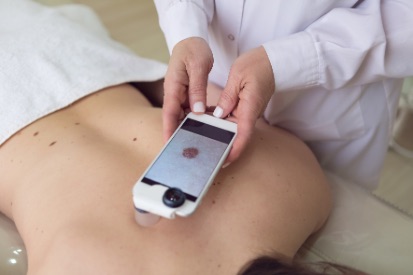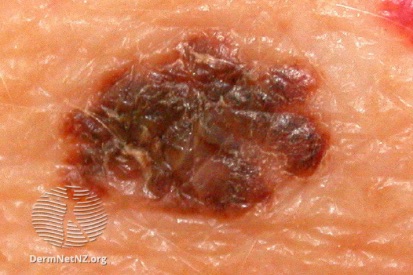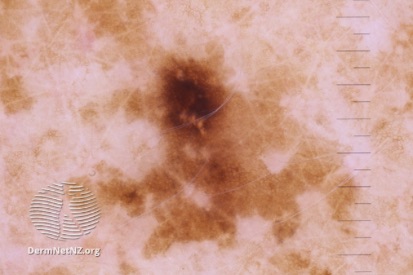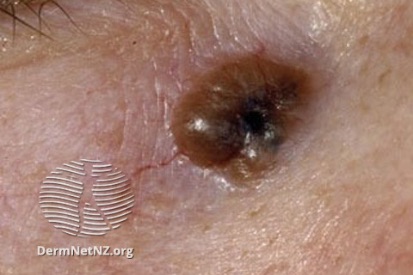Skin Cancer
Skin cancer stands as the most prevalent form of cancer globally, affecting a significant number of individuals. Alarming statistics from the Skin Cancer Foundation reveal that 1 in 5 Americans will confront some form of skin cancer by the age of 70.
This pervasive condition originates when abnormal cells undergo uncontrolled growth within the skin, often manifesting through changes in moles or the emergence of new growths. The three primary types of skin cancer—melanoma, basal cell carcinoma, and squamous cell carcinoma—underscore the diverse nature of this health concern.
Recognizing the pivotal role of early detection in treatment effectiveness and optimal outcomes, an annual full-body skin examination by a dermatologist is deemed essential. At Zitelli & Brodland, we dedicate ourselves to education, prevention, and the early detection of skin cancer, placing your well-being at the forefront of our mission.
Zitelli & Brodland is unwavering in our commitment to assisting patients in reaching their lifelong goals. Through the provision of proactive measures, early identification, and state-of-the-art surgical care, our aim is to empower individuals not only to preserve but also to exceed their expectations for skin health. Your well-being, aspirations, and skin health are central to our mission.
Embrace a proactive approach to safeguard the health of your skin by scheduling an appointment with one of our trusted dermatologists today. As global leaders and innovators in skin cancer surgery and reconstruction, Zitelli & Brodland remains steadfast in our dedication to guiding you on a path toward optimal skin health.
Examples of Skin Cancer






How to Spot Skin Cancer
Skin cancer can present in various ways, which is why it’s important to stay alert to any changes in your skin. Recognizing subtle or persistent skin changes early can significantly impact diagnosis and treatment outcomes for skin cancer. If you notice anything unusual, it’s best to consult a dermatologist at Pinnacle Dermatology for a professional evaluation.
Common skin cancer symptoms include:
- Changes in the size, shape, or color of existing moles
- New growths or spots that look different from other areas of your skin
- Sores or lesions that don’t heal, or heal and return
- Bumps that are pearly, waxy, or have a translucent appearance
- Rough, scaly patches or crusted areas on the skin
What Causes Skin Cancer?
As mentioned above, skin cancer often begins with damage to the DNA of skin cells, most commonly from ultraviolet radiation. Over time, this damage can lead to abnormal cell growth and cancer development.
At Pinnacle Dermatology, we understand the many factors contributing to skin cancer risk. We are committed to helping you identify and manage those risks through expert care, personalized prevention strategies, and routine skin exams.
Common skin cancer causes include:
- Excessive UV exposure from the sun or artificial sources like tanning beds
- Frequent sunburns, especially during childhood or adolescence
- Fair skin, light hair, and light-colored eyes (lower melanin levels mean less natural protection)
- A history of skin cancer or precancerous lesions
- Weakened immune system, due to illness or medications
- Exposure to toxic substances, such as arsenic
- Genetic factors or a family history of skin cancer
- Chronic skin inflammation or injuries in the same area over time
How to Prevent Skin Cancer
While skin cancer is one of the most common cancers, it’s also one of the most preventable. Every day presents an opportunity to protect your skin and reduce your risk through simple, consistent habits. From daily sun safety to staying aware of changes in your skin, skin cancer prevention starts with awareness—and ends with action.
At Pinnacle Dermatology, we empower our patients with the knowledge and care they need to take charge of their skin health. Through daily protection, self-checks, and annual total body skin exams, you can stay one step ahead and safeguard your health for the long term.
Daily Protection Habits
Daily protection starts with healthy skin habits. Use a broad-spectrum sunscreen with SPF 30 or higher every day, even on cloudy days, and reapply regularly. Wear protective clothing like wide-brimmed hats and long sleeves, and seek shade during peak sun hours (10 a.m. to 4 p.m.) to minimize UV exposure.
Importance of Regular Skin Self-Exams
Perform a monthly skin cancer self-exam to check for new moles or changes in existing spots. Use a mirror to examine all areas of your body, including hard-to-see places. If you notice anything suspicious, such as changes in shape, color, or size, schedule a visit with a dermatologist immediately.
Annual Total Body Skin Exams at Pinnacle Dermatology
An annual total body skin exam with a Pinnacle Dermatology provider offers a thorough, professional evaluation of your skin. During the exam, we check for any abnormal moles, lesions, or changes. Early detection dramatically improves treatment success, making these yearly exams vital to your skin health routine.
Skin Cancer FAQs
Early detection is crucial for effective treatment. Perform regular self-skin examinations, checking for changes in moles, new growths, or unusual spots. Additionally, an annual full-body skin examination by a dermatologist is recommended for comprehensive assessment.
Risk factors include excessive sun exposure, a history of sunburns, fair skin, family history of skin cancer, certain genetic conditions, and exposure to certain environmental factors. Understanding these factors can help individuals assess their risk and take preventive measures.
Diagnosis involves a biopsy, where a sample of the suspicious area is removed and examined under a microscope. Dermatologists may also use tools like the ABCDE rule (Asymmetry, Border irregularity, Color variations, Diameter larger than 6mm, Evolution or change) to assess moles.
Sun protection is crucial for preventing skin cancer. This includes using sunscreen with a high SPF, wearing protective clothing, avoiding peak sunlight hours, and seeking shade. Regular skin examinations, both self-checks and professional evaluations, contribute to early detection and prevention.
From Our QualDerm Family of Providers: Skin Cancer Treatment Options
Skin Cancer Treatments
Receiving a skin cancer diagnosis can feel overwhelming, but treatment options today are highly effective, especially when the condition is caught early. At Pinnacle Dermatology, we provide personalized care plans tailored to your specific type, stage, and location of cancer. Whether your treatment involves non-surgical methods or advanced surgical techniques, our experienced providers are here to guide you every step of the way.
Non-Surgical Treatments
For certain types and early stages of skin cancer, non-surgical options can be effective. These may include topical medications, cryotherapy (freezing), or targeted therapies that destroy cancer cells without incisions. Your Pinnacle Dermatology provider will determine if a non-invasive approach is appropriate for your condition.
Surgical Treatments
Surgical treatments are often the most effective option for removing skin cancer, especially in more advanced or high-risk cases. Procedures may include excisional surgery or Mohs micrographic surgery, which precisely removes cancerous tissue while preserving healthy skin. Pinnacle Dermatology offers expert surgical care tailored to your needs and diagnosis.
Featured Products for Sun Protection
Check your local office for current stock!
Check your local office for current stock!
Featured Healthy Skin Blogs

- Skin Cancer
Discover the truth about UV radiation and sunscreen as we debunk common myths in this blog.
Read More
- Skin Cancer
- Skin Exams
Skin cancer is the most common cancer in the United States. Learn ways to safeguard your skin.
Read More
- Skin Cancer
Don’t become another cancer statistic. Skin cancer is easily preventable and if detected early, is highly treatable.
Read More

